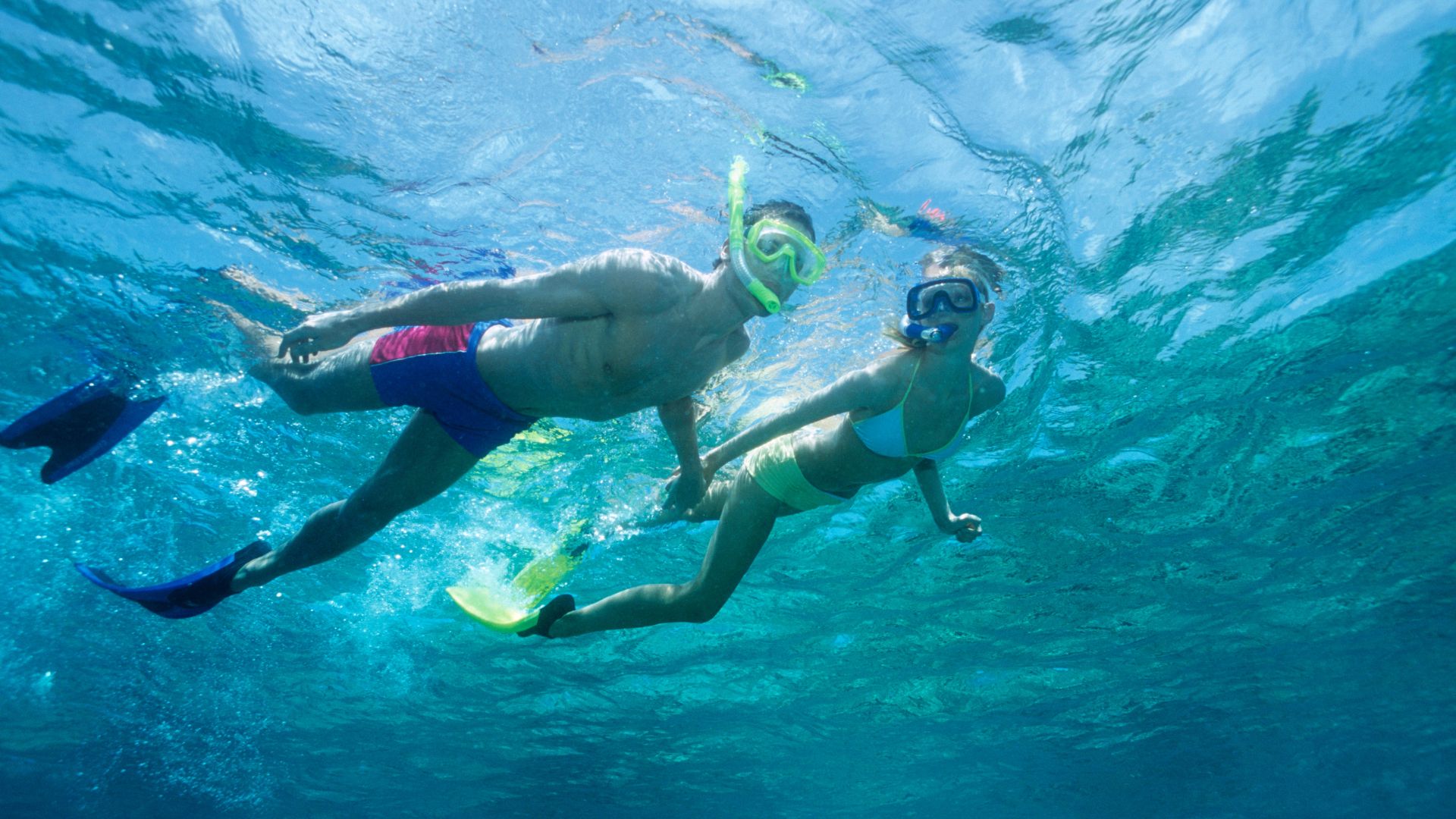
The art of snorkeling
That first plunge into the beautiful blue is always euphoric; the caress of the tropical ocean an immediate relief from the warm equatorial sun. Equipped with just our trusty snorkeling masks and fins, we check the currents and cherish a lungful of oxygen before delving into a marine magical mystery.
Like so many other times, we were somewhere in one of the many Maldivian lagoons that dot the Indian Ocean. The numerous coral reefs protecting the pristine pearl islands of the Maldives are also home to a host of tropical sea creatures (ourselves included, that fine day). An encounter with a sea-turtle, elusive eels, sleeping stingrays, an occasional octopus, are all common sights on every such adventure. Countless species of multicolored fish dwell within vibrant coral habitats and flamboyant aquatic vegetation with hues to humble any artist. A pod of dolphins are likely to liven things up, or on lucky days an encounter with a glorious tropical shark. Fish stocks are so abundant, confrontation between sharks and humans are practically unheard of in the Maldives.
With rhythmic gentle strides, our fins purposefully push us along the reef bed, as we marvel at its diversity of life. The relaxed beats of our hearts provide the perfect ambience for the hypnotic deep blue as we frequently pause to peer into coral formations teeming with activity. The experience lasts minutes that seem like hours; the spell of which is only broken while easing back to the surface to replenish ones air.
For a beginner in the water, the natural reaction is to seek solace in the security of a floatation device, or pretty much anything else that can be clung to, to keep from sinking. As one grows more comfortable in the water, assisted floating is no longer a neccesity. The ocean’s surface becomes a place of rest, a comfort zone. Further down this waterlogged journey, you begin to feel right at home underwater too. When we are submerged, warning bells go off as the brain immediately begins to inform us that we are in non-breathable territory, and our first conscious reaction is to surface. Not necessarily because we are out of oxygen, but due to the panic caused by a more primal fear of not being able to breathe.
Conquering that fear is necessary to determine, as well as enhance, the capacity of our lungs. Once free of such fear, we can focus on understanding the flows and consuming energy as effectively as possible. When underwater, our air supply is consumed with every movement. The mind has to be perfectly calm, the heart has to beat slower, our limbs must move with precision or not at all, and we must be mindful of the depths and distances we are comfortable with.
Freediving is another science in itself, but being able to control our breath and do mild plunges as we snorkel the reef is vital to truly experience the phenomenal underwater splendor celebrated by the Maldivian archipelago. Being a Maldivian, born on islands measuring an average kilometer or less across, understanding and embracing the gifts of the ocean is essential for the survival of our people. My companions swam like fish; they inspired me to understand the secrets of the sea – a never ending mystery.
Numerous Scientific studies are also testament to the miraculous healing effects of the ocean on the human body. Regular adventures in the salty sea as one flows freely in the water leaves the body, mind and spirit revitalized. It is the experience of a lifetime and my favorite addiction; the bliss of a single breath – the Maldivian way.

